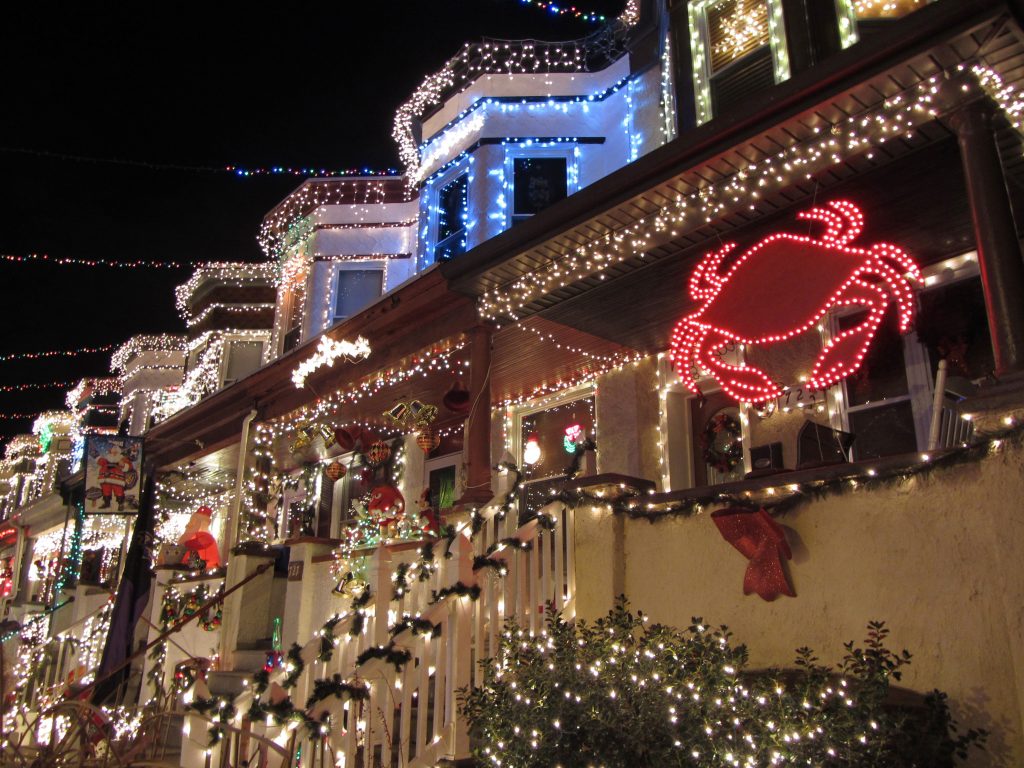
It’s that time of year, the “Holiday Season” when Muslims get really awkward. There are three types of Holiday Season Muslims, those who do not celebrate but are happy to accept holiday wishes from others, grinches who are genuinely offended that your holiday cheer is being spewed all over them “Bah!! No cheer for me!”, and those who celebrate Christmas. Growing up, our family was somewhere between the first and last.
My family didn’t celebrate Christmas per se. There was no holly or mistletoe and definitely no tree in the house. However, we’d pull up to the mall loudly blasting Christmas carols and sit in the car belting out lyrics until the song ended. And at home, we would binge watch Christmas movies during the break, drink eggnog and eat cookies that my aunt and uncle gave out to every family member. We were dazzled by the beauty of the lights and enjoyed the general feeling of goodwill that accompanies the season. Every year my mother would drive us to experience the Miracle on 34th St. in Hampden, and we’d just revel in it all. I’ve carried that tradition on with my own children as well.
However, with Santa, my parents were plain speakers. They didn’t sugarcoat things to ease or soften the blow. Santa, according to my parents, was a bold-faced lie told to children by none other than their own parents. My father would say, “Imagine that, a person works so hard to provide gifts for their children and they give the credit to some mythical character. That’s just crazy!” But, if I’m honest, I wanted desperately to believe in Santa. I loved all things fantasy, even now my favorite genre is sci-fi or speculative fiction. So, as a child, I stayed up late sitting in front of our faux fireplace and waited. I really hoped that somehow, Santa would come through that fake brick and leave me a gift. Reliving that while writing makes me feel a little sad. The sadness of knowing as a child that this little bit of fairy magic wasn’t for me brings back that particular longing for the fantastic. I wonder if my children are feeling that now.
Recently, my children have been asking to celebrate Christmas. My oldest, in particular, is very articulately making a case for it. “We don’t have to celebrate Christmas.” she says “We can just decorate, and get a tree. Christmas is all about being with your family. What’s wrong with that?”. She asks every day. She doesn’t understand the reasoning — it’s just not our holiday. That’s not enough for her, and she’s right, I need to have an actual reason. My middle child joins in the fray, picking up where the oldest left off and making her case. I understand them, who wouldn’t want to celebrate Christmas? In a fistfight with Hanukkah and Eid tag-teaming together, American Christmas would knock out both. It’s so big, bold, and ubiquitous. But in this melting pot of interfaith multiculturalism, how much is too much?
At what point does one’s own identity become blurred when melting into the pot? Will I recognize us once we’re done melting? Also, to what end? If we celebrate Christmas now because come on, who are we kidding, getting a tree is celebrating Christmas, is Easter next? How would relenting and celebrating Christmas teach my children who are already very different than the societal norm, that it’s ok to be who they are, that they don’t need to conform and take on someone else’s norms and values, that we have our own? I want them to revel in their difference, to bask in their glorious beautiful uniqueness. I want them to know that who they are is ok. But then I think, what’s the big deal, it’s just a tree.
Siddeeqah Sharif Fichman is a Social Justice Advocate at NLife, and a member of the 2018 ICJS Justice Leaders Fellowship.
Baltimore is part of a national conversation around questions of justice, race, and community. Members of the ICJS Justice Leaders Fellowship consider how Jewish, Christian, and Muslim teachings and practice can contribute to the public conversation about (in)justice. Opinions expressed in this blog are solely the author’s. ICJS welcomes a diversity of opinions and perspectives. We do not seek a single definition of justice between or within traditions.